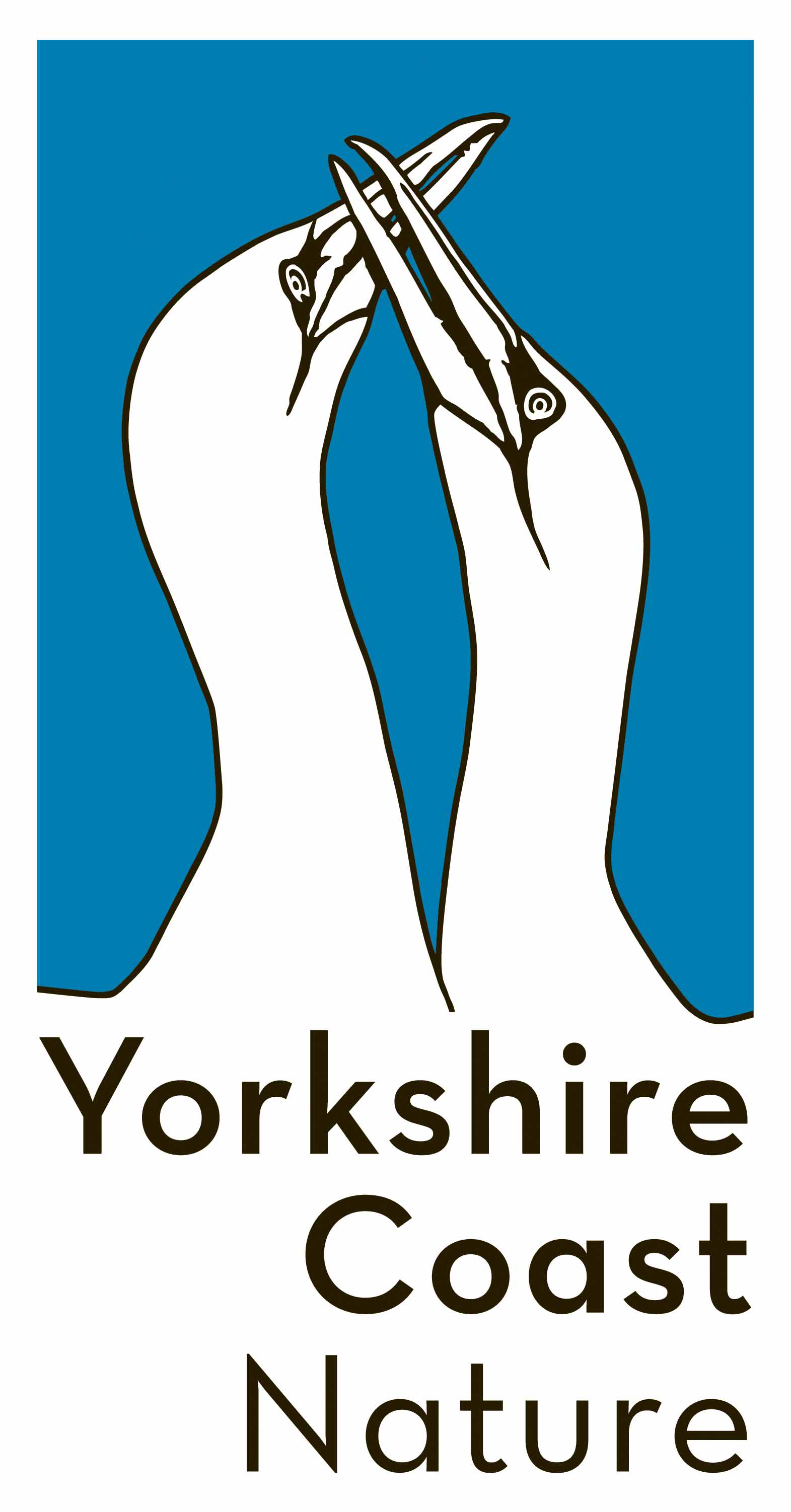This breeding season marked a fantastic milestone at the Beacon Lagoons Little Tern colony near Spurn Point, East Yorkshire.

12 October 2023
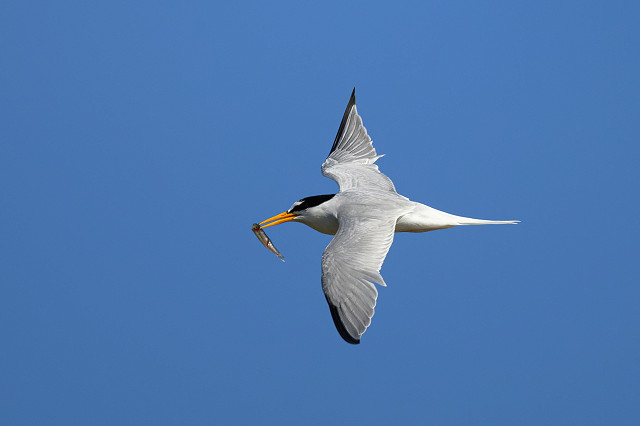
Little Tern - Thomas Willoughby
After a cold start, with the wind coming from the north-east, the Little Terns began to incubate at the start of June. The first chicks then appeared a little over three weeks later, whilst others had only just started to lay – protracting this year’s season. By the 10th July, the first Little Tern chicks were taking short flights around the colony.
Gradually, over the next four to five weeks, more Little Tern chicks continued to fledge and by the middle of August, all had done so with a record breaking 107 fledging from 58 nesting pairs.
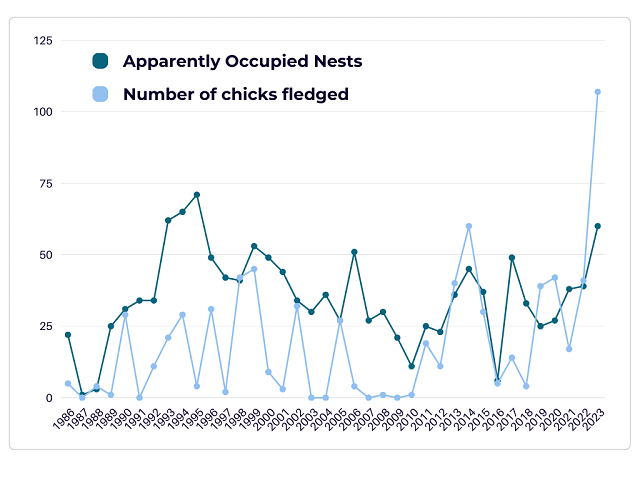
^ Graph showing the number of Apparently Occupied Nests and the number of chicks that fledged during the season, from 1986 to 2023’s record breaking year!
The reason for such a high number of pairs of Little Terns is thought to be down to a combination of factors. Firstly, and most importantly, the habitat management done early in the year created a lot of high quality nesting habitat so there was more space for a greater number of pairs inside the colony, as in recent years more birds have been nesting on the publicly accessible beach which leads to disturbance and predation issues. Other factors include lack of disturbance from people, low levels of predation, seemingly large amounts of food close inshore and no extreme weather events,i.e. high tides washing nests away.
As well as Little Terns, other species of shore nesting birds had a good season too. There were 12 pairs of Ringed Plover fledging 23 young, while Oystercatchers fledged six young. Avocets fledged five young from six pairs and Black-headed Gulls raised four young from two pairs.
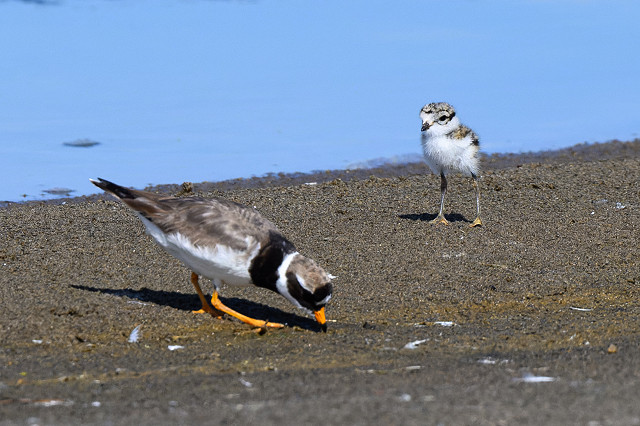
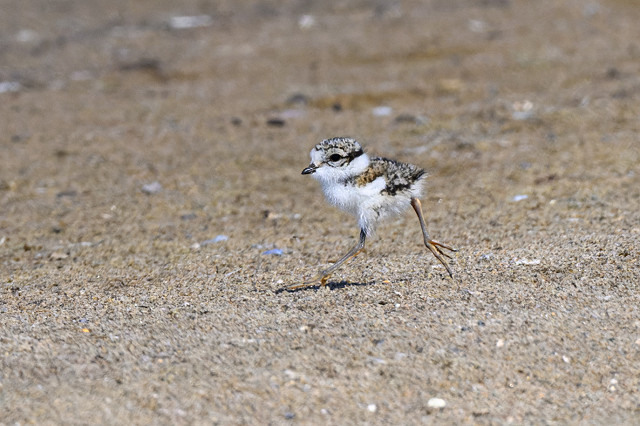
Ringed Plovers - Thomas Willoughby
The most interesting record of the season was a pair of Little Ringed Plovers fledging two young from a single nest, this represents the first time this species has bred at the colony, and first time they have successfully bred in the Spurn Bird Observatory recording area.
Across the UK as a whole, Little Terns face pressures from disturbance - nesting on beaches popular with humans - predation, from species such as Foxes and Kestrels and a loss of suitable breeding habitats. Climate change has also been linked to both the increase in extreme weather events resulting in tidal surges - washing nests away and to changes in food availability at the crucial time of the season for chick rearing, hindering productivity further with a decline of more than 40% recorded by the BTO/JNCC Seabird Monitoring Programme since 1986, the productivity record seen at Beacon Lagoons is very encouraging.
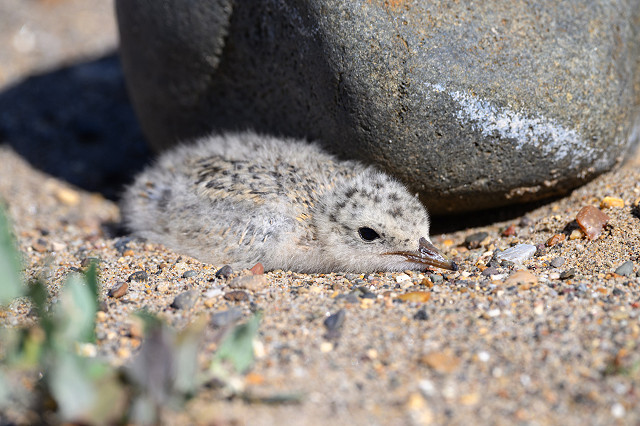
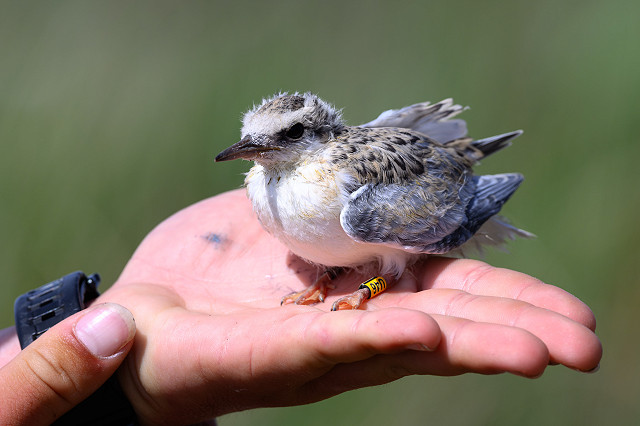
Little Tern chicks - Thomas Willoughby
Jacob Spinks, Little Tern Head Warden extends his thanks "I would like to thank all members of staff and volunteers that have made this season so successful, and to all members of the public that listened to our advice on how to keep these birds safe."
Each breeding season, staff and volunteers work around the clock at Beacon Lagoons to protect the nesting Little Terns at the colony, with 24 hour surveillance and a fence surrounding the colony itself in a bid to keep people and predators outside of the colony. Public awareness is also a crucial part of the role. Little Tern wardening at Beacon Lagoons is conducted thanks to a partnership between Spurn Bird Observatory, Natural England, Yorkshire Wildlife Trust, South Holderness Countryside Society, RSPB and the Environment Agency.
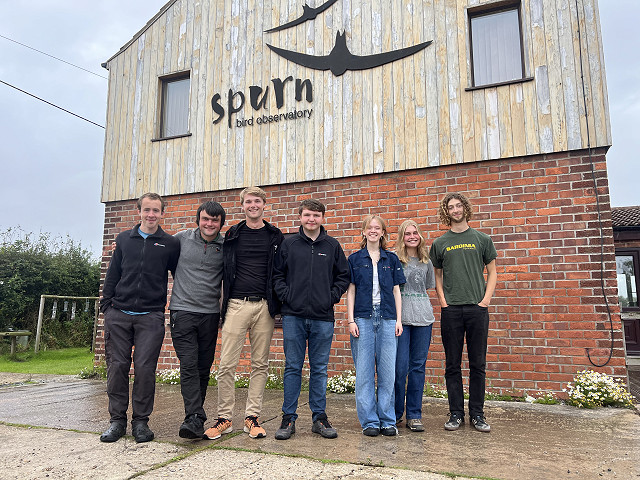
2023 Little Tern Warden Team, left to right; Tom Wright, Jacob Spinks, Joshua Brown, Harry Coghill, Eva Finney, Erin Gold, Joe Griffin
You can help support our work protecting Little Terns by volunteering your time to protect the birds in the breeding season, through to assisting financially to ensure continued wardening teams and habitat management into the future via a donations page, here: https://spurnbirdobservatory.co.uk/support-us/donate


